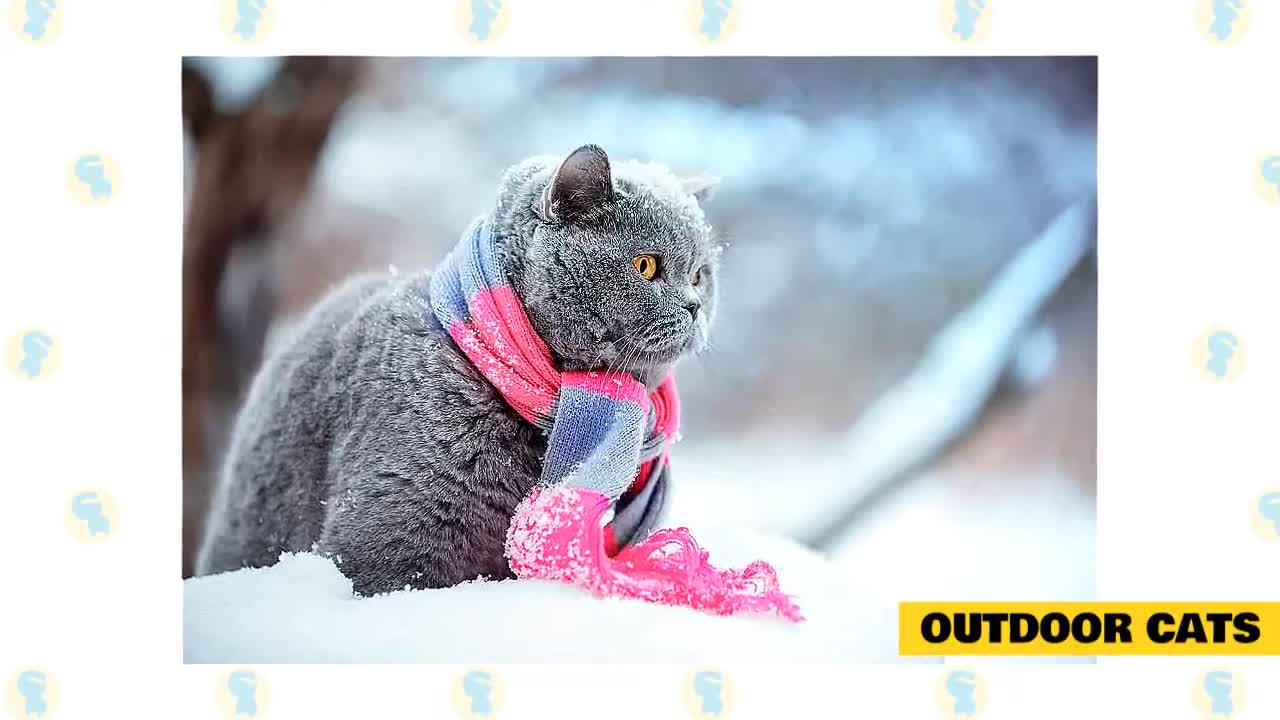Premium Only Content

Cat 101: Cats and Cold Weather
In today's video, we are going to talk about Cats and cold weather.
Cold weather can be hard on cats, just like it can be hard on people. When the thermometer dips below freezing, it is important to protect your cats from the cold spell. The most important is to keep your cat indoors. Probably the best prescription for winter's woes is to keep your cat inside with you and your family. Being outdoors, unattended does nothing to improve the quality of your cat’s life.
Cold weather problems.
Sometimes cat parents forget that their pets are just as accustomed to the warm shelter of the indoors as they are. Some people will leave their cats outside for extended periods of time, thinking that they will adapt to life outdoors. This can, however, put pets in danger of serious illness.
Hypothermia, or a body temperature that is below normal, is a condition that occurs when the cats are not able to keep their body temperature from falling below normal. It happens when they spend too much time in cold temperatures, or when cats with poor health or circulation are exposed to cold. In mild cases, your cat will shiver and show signs of depression, lethargy, and weakness. As the condition progresses, her muscles will stiffen, her heart and breathing rates will slow down, and she will stop responding to stimuli. If you notice these symptoms, you need to get your cat warm and take her to your veterinarian.
Another cold-related problem is frostbite. Sometimes your cat may accidentally be left outside or become lost during a heavy snowstorm. The result could be frostbite. If this happens, remember - frozen tissue should never be rubbed. This causes additional tissue damage. Prompt veterinary treatment is needed. If this is not possible, warm the affected area rapidly by immersing in warm, never hot, water or by using warm, moist towels that are changed frequently. As soon as the affected tissues become flushed, discontinue warming. Gently dry the affected area and lightly cover with a clean, dry, non-adhesive bandage. If frostbite is in the later stages, gangrene may set in and cause all kinds of infections. If you suspect your cat has frostbite, take her to the veterinarian.
-
 0:25
0:25
ZAT1
2 years agoCold weather
3 -
 LIVE
LIVE
Drew Hernandez
7 hours agoKARMELO ANTHONY FAM BUYS NEW CAR, BIG LETICIA IS SHOOK & EL SALVADOR ILLEGAL IS A WIFE BEATER?
475 watching -
 LIVE
LIVE
Illyes Jr Gaming
1 hour agoThis Is Gonna Be Sonething!?!??!
66 watching -
 LIVE
LIVE
TheNateVibez
1 hour ago#1 Kentucky streamer slapping you with some vibez✌ || ArmyVet🫡
63 watching -
 1:19:15
1:19:15
Kim Iversen
5 hours agoThe Rise Of The New Nazis: Free Speech Is DEAD in Europe — And It’s Coming Here Next | CJ Hopkins
71.7K120 -
 LIVE
LIVE
Melonie Mac
2 hours agoGo Boom Live Ep 45!
348 watching -
 13:24
13:24
Exploring With Nug
12 hours ago $2.71 earnedSearching For Missing Woman Using Underwater Drone!
34.5K1 -
 1:50:48
1:50:48
2 MIKES LIVE
5 hours ago2 MIKES LIVE #206 News Breakdown Wednesday!
18.6K3 -
 LIVE
LIVE
GrimmHollywood
10 hours ago🔴LIVE • GRIMM HOLLYWOOD • BRRRAP PACK 500 KILL CHALLENGE • LIL PAUL, SGTWILKY & OMEGA •
37 watching -
 13:08
13:08
China Uncensored
6 hours agoChina is DESPERATE! Trump Tariffs Cut Deep
7.16K6